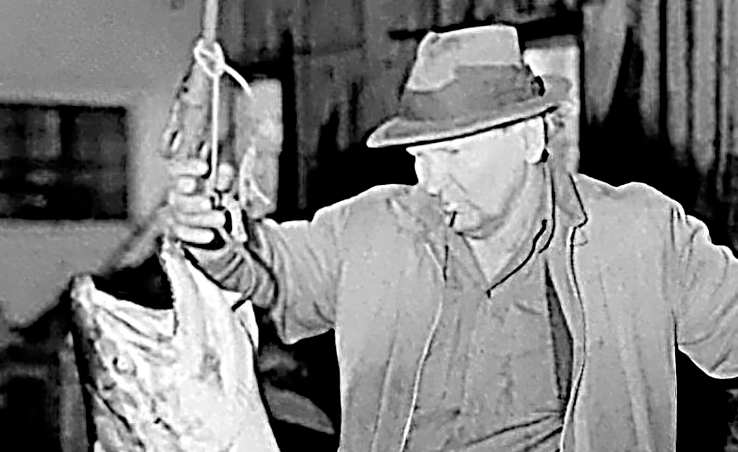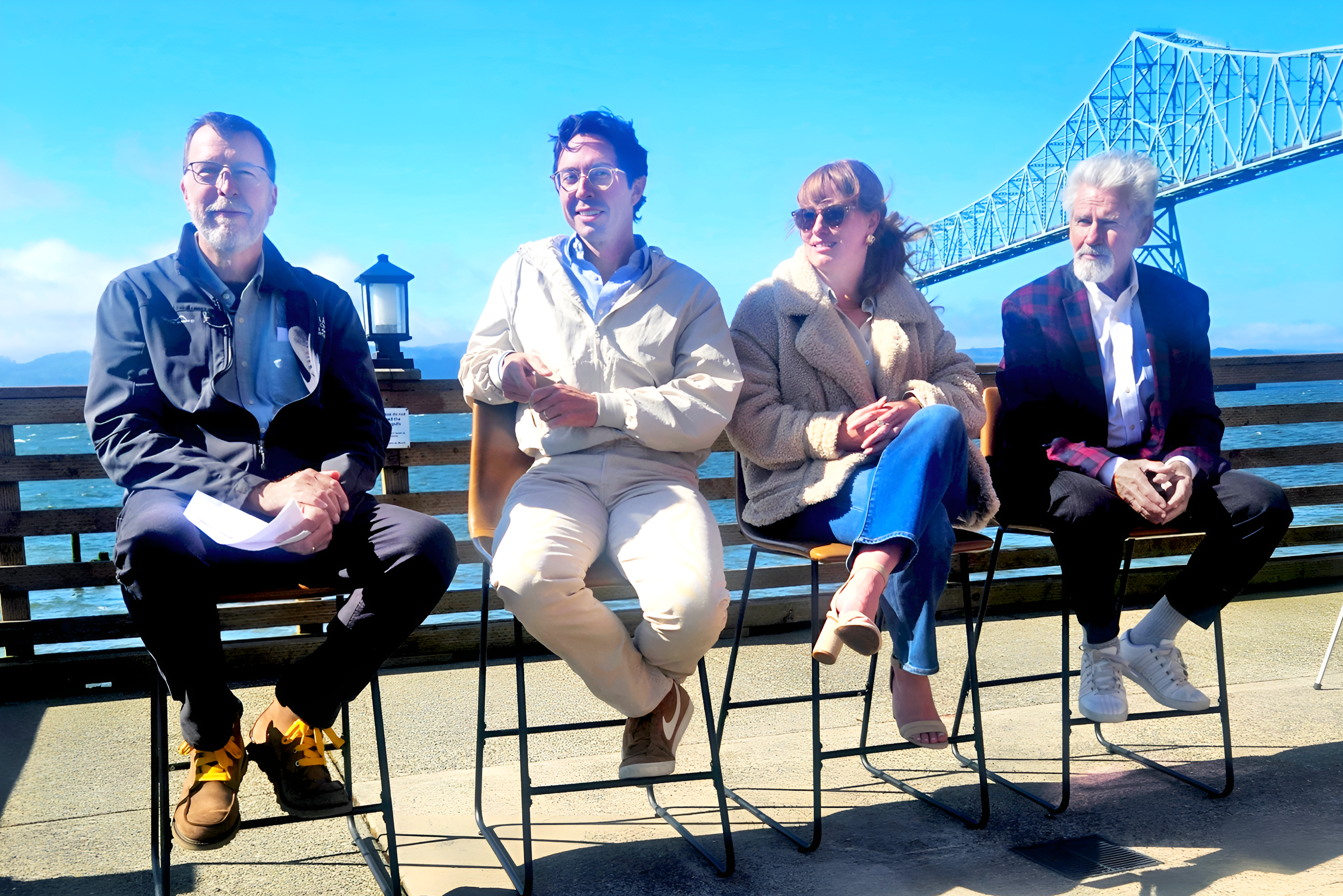Columbia Forum: Keeping those in power honest
Published 4:05 am Wednesday, March 8, 2017

- Columbia Forum attendees listen to a presentation by journalist Nigel Jaquiss on Tuesday in Astoria.
The free press can act as a check on politicians’ worst impulses, Nigel Jaquiss, an investigative reporter at Portland’s Willamette Week, said.
And, if any entity can hold President Donald Trump to account, it will be the press, despite shrinking newsrooms and dwindling revenue.
Jaquiss, who won the 2005 Pulitzer Prize for exposing former Gov. Neil Goldschmidt’s sexual abuse of a young teenage girl, gauged the press’ role in the age of “alternative facts” at the penultimate Columbia Forum dinner, held Tuesday at Columbia Memorial Hospital’s Community Center.
A few years after publishing the Goldschmidt story, Jaquiss revealed Portland Mayor Sam Adams’ courtship with an intern for state Rep. Kim Thatcher, whom he met when the intern was 17.
He also broke Gov. John Kitzhaber’s corrupt financial shenanigans with his partner, a scandal that led to the governor’s resignation in 2015.
In Jaquiss’ telling, the story of these men who shaped Oregon’s recent history is archetypal: hubris causing the downfall of influential but flawed statesmen who lost the greatness within their reach.
“They were all, in their own ways, very gifted public servants: highly intelligent, highly accomplished, got into public service for the right reasons,” he said. “And they all suffered in the end from the same thing that affects many public servants, that affects many people.”
It is hardly novel, he noted, that powerful, talented people can be brought down by hubris — that power causes officeholders to lose their moral bearings and commit acts that, when publicly disclosed, hobble or obliterate their political careers.
Goldschmidt’s career-ending mistake came when, 13 years after leaving the governorship, he took on two major assignments: chairman of the state Board of Higher Education (under his protégé, Gov. Ted Kulongoski), and a role promoting a Texas investment group’s controversial attempt to purchase Portland General Electric. His decision not to pursue a second term as governor the previous decade had mystified many people.
“He had a secret,” Jaquiss said, “and if he had just stayed offstage, that secret would have probably gone to the grave with him — or at least it never would have been publicly revealed.”
Instead, after Willamette Week uncovered the life he had destroyed, Goldschmidt resigned from his posts and retired from public life.
Adams’ hubris arose in neglecting to hire a staff that could effectively challenge him — that could push back on his poor decisions, Jaquiss said.
Adams himself had been a strong chief of staff to Portland Mayor Vera Katz. But when his turn came, “Sam surrounded himself by people who were sycophants and yes-men and yes-women,” Jaquiss said.
When Adams started hanging out with his teenage inamorato, Adams’ entourage enabled his vices.
“Nobody said, ‘Hey, you can’t do this. This is terrible. This is going to end your political career.’ So they couldn’t stop him — or wouldn’t stop him,” Jaquiss said.
“He had forgotten everything that he had ever learned in politics,” he continued. “It’s OK to have relationships with people; you just can’t have inappropriate relationships with people. And, if you’re asked about them, you can’t lie about them.”
Adams, who maintained his lover was 18 when sexual relations began, managed to escape a criminal investigation and two recall efforts. But, Jaquiss said, Adams had crippled his long-term political prospects. “He blew this brilliant career,” Jaquiss said.
And Kitzhaber, the longest serving governor in Oregon history, allowed girlfriend, Cylvia Hayes, while she served as his policy adviser on clean energy and economic development, to bring in hundreds of thousands of dollars in consulting contracts — money that benefited him.
“He was really, really smart, and, I think, he was really dedicated to public service,” Jaquiss said. “But he had this terrible blind spot when it came to his fiancée. He allowed her to take those contracts, from which he benefited. And that was basically what finished him.”
Kitzhaber let this conflict of interest fester, in part, because the governor needed the money, Jaquiss said.
“So you have, on one hand, this woman, Cylvia Hayes, who was clearly interested in making money. You have a governor who doesn’t have enough money. That’s a very bad combination,” Jaquiss said.
Kitzhaber succumbed to hubris when he behaved as if he lost his sense of accountability.
“It wasn’t, I think, that he was so venal or evil — he’s not,” Jaquiss said. “It’s that he didn’t have any fear of losing an election, or he didn’t have an effective check from the other side of the aisle in the Republican legislators.”
These men — three Democrats whose futures held considerable promise — broke their social contract with constituents in different but “fundamental and important ways,” Jaquiss said.
The press’ role is to keep such public figures’ behavior transparent — a function whose importance is now getting major play on the world stage.
“We have a president who clearly has absolutely no respect for the press, and no regard for the accountability and transparency that the press can bring when we do our jobs,” he said.
But he believes the fight is a healthy one. The press, though it has fewer men and women on the front lines, remains a vital institution at the local, state and national levels.
“Sure, the president is beating up on the press. I think they can take it — we can take it. I think what you’ve seen is, reporters who do their jobs by digging up documents, finding people who will talk, finding people who will tell the truth — they’ll be able to keep that guy honest,” Jaquiss said. “If anybody can keep that guy honest, I think the press will be able to do that.”






